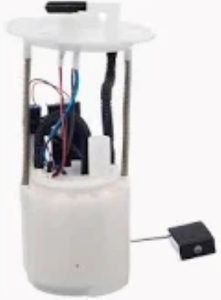A fuel-smelling fuel pump may indicate a leak in the fuel system or a problem with its seals. Generally speaking, in fuel pumps there should not be an option for the fuel vapors to leak out, due to the fact that fuel smell in general would prove either that the fuel lines, gaskets, or even the fuel pump itself has a problem. A small crack or worn seal can allow fuel to leak or vapor to escape, especially in these high-pressure systems where fuel is delivered at a rate of 35-65 PSI. Besides causing gas odors, such leaks can reduce fuel flow efficiency, consequently affecting engine performance.
The fuel line cracks are some of the frequent causes of this problem. As time wears on, particularly in the older vehicles, rubber fuel lines degrade and are susceptible to cracks and wear that may allow gas odors around the pump area. Modern cars use durable materials that can stand years of fuel exposure, but even these lines could be worn down eventually. Since the replacement cost of these lines is relatively inexpensive, the mechanics' recommendations are to check fuel lines every 30,000 miles or when gas odors become apparent to avoid damage created by persistent leaks.

Other possible causes of the smell come from the seals and gaskets of the fuel pump. These can become brittle with age or distort to allow fuel vapor to leak around their edges. According to auto expert Scotty Kilmer, "fuel system seals should be tight and not leak," emphasizing that small leaks in such seals also can cause gas fumes to become apparent. Periodic maintenance of the Fuel Pump and its seals keeps such things at bay.
An incorrectly working fuel pressure regulator can also cause an excessive gas fume smell to emanate around the fuel pump. When regulators fail, they sometimes cause over-delivery of fuel and flood the lines, creating excess vapor in the process. The excess vapor builds up to give off a gas smell that indicates a need to take immediate repair. On high-performance or modified vehicles, where fuel pressure regulators are more often under greater stress, periodic checking is needed to ensure the pressure stays within a favorable range.
Gas odors around the fuel pump are never anything to take lightly. Leaks of fuel increase fire hazards and reduce vehicle efficiency. Periodic checks, therefore, not only in the older vehicles, make for a safe fuel system and hence a safe and reliable operation.